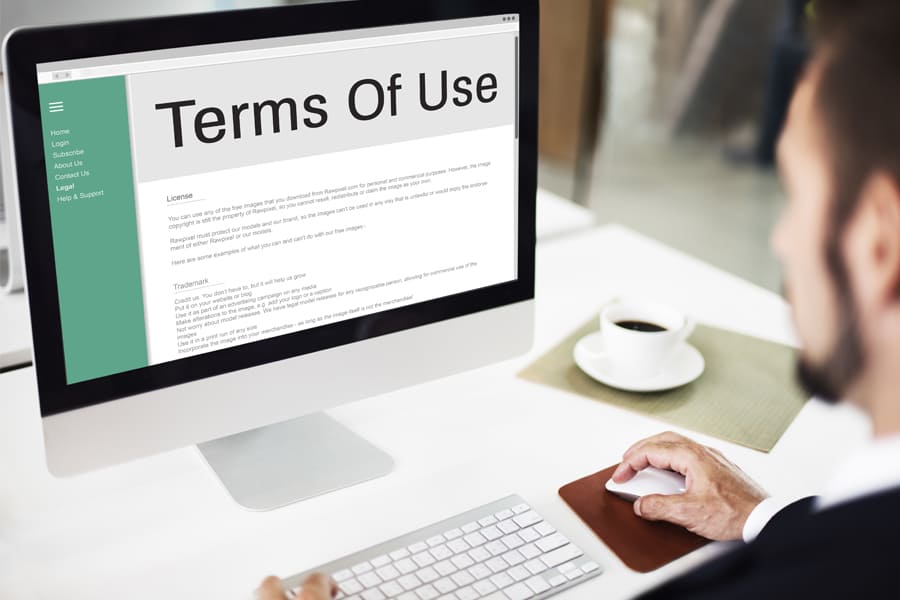Nowadays, establishing an e-commerce business online is simple enough. Still, at one point or another, any business owner is faced with the question: “Do I need a business license to sell online?”
The short answer to that question in the USA is: “If you want to operate as a legitimate business – yes.”
The long answer is in the rest of this blog post, explaining business licenses, business entities, seller’s permit, and the licenses needed for an online business. Among other things, we will also tackle some common misconceptions and provide a step-by-step guide on how to go about securing the appropriate licenses for your ecommerce business.
Please note that this guide is intended to provide valuable knowledge in a single place, but it is no substitute for legal consultations. Therefore, it should by no means be treated as legal advice.
Discussing things with a business attorney or a professional advisor is always a good idea to ensure you fully comply with all relevant laws and regulations.
With that out of the way, let’s dive right in!

Overview of business license requirements
A business license is issued by government agencies, allowing an individual or company to operate legally as a business entity within a specific jurisdiction.
When you get a business license, you have the legal standing to conduct business in a particular area. But you might have to get more than one license to do that.
The US Small Business Administration claims that most small businesses require licenses and permits from federal and state agencies.
The specific requirements can vary depending on the following:
- Type of business;
- Business location;
- Rules of the jurisdiction.
Thus, the question shifts to: “What business licenses do I need?”
A restaurant usually has different licensing requirements than a freelance graphic design service. Similarly, ecommerce business owners require other licenses from owners of brick-and-mortar stores to sell online.
Federal and state laws for online sellers
On the federal level, business laws revolve around customer data protection and interstate commerce. Their general nature makes them easier to grasp, as most online businesses already adhere to GDPR, which shares some identical points.
The Federal Trade Commission (FTC) enforces online privacy laws, guiding businesses to comply with these regulations. Your responsibility is to ensure your business practices align with these federal laws.
On the state level, laws vary even more. Some states require you to hold statewide general business business licenses, while others don’t go as far. Each state revenue department has up-to-date information on how you can obtain a business license and what it will cost you.
For instance, in Texas, not all enterprises need a state license, but they may instead require permits and licenses from other state agencies.
Business license vs seller’s permit: what’s the difference?

Do not confuse a business license and a seller’s permit. A license authorizes you to conduct business, while a permit identifies you as a sales tax collector.
As an online seller, we are collecting and paying sales tax on transactions where it’s applicable. That’s because your seller’s permit also serves as your Sales Tax Identification Number.
For example, in California, the State Board of Equalization mandates that a seller’s permit is required for all entities engaged in the retail sale of tangible personal property, including online sales.
Some states offer temporary seller’s permits, too. Those are meant for businesses that only plan to sell in the state for a short period, like at a trade show or a holiday market.
On that note, most people refer to the same thing when talking about a sales tax permit and a sales tax license. What they mean is a document that gives you the right to sell items as a retailer collects sales tax you will then have to send to your state.
In Colorado, you might come upon the term sales tax license; in Michigan, it might be called a sales tax permit instead. When unsure, it’s best to consult with the local state revenue department or a business attorney.
Types of business licenses for online sellers
Your business activities and jurisdiction are the primary factors determining what licenses you need for online sales.
Alas, there is no universal ecommerce business license, but you can boil it down to the following types:
- General business license. It is the most basic of licenses. It authorizes you to operate your business within a particular jurisdiction.
Many cities and countries require all businesses, including home-based and online businesses, to have general business licenses. - Professional and industry licenses. Some goods and services require additional industry-specific licenses.
For example, if you’re selling items regulated by the FCC, such as electronic equipment, you’ll need a federal business license. - Local business licenses. Depends on your location and the nature of your business.
If your city or county government has laws pertaining to local businesses that mention having a permit or license, you must secure one. - Home occupation permit. Considering how many companies have shifted to remote work in recent years, this one is strongly relevant for WFH businesses.
If you live in an apartment complex, you will have to check for any additional rules by contacting your property manager and notifying them or your landlord.
Since there is no specific online business license you have to get, you will need to find out which documents are relevant to your business operations.
Applying for a business license: step-by-step process
The process of getting your business license changes with your location and the kind of online sales you’re doing.
Here’s the gist of it:
- Identify your business activity. What is your business primarily about? Find that out before you go further.
- Determine the necessary licenses and permits. What documents are required for your type of business? Verify the necessary licenses and permits following your local city or state government.
- Fill out an application form. Or several if you have to apply for more than one license.
That usually involves providing details about your business, such as:
- Employer Identification Number (EIN) – in the US, it’s issued by the Internal Revenue Service (IRS);
- Business structure (whether you’re a sole proprietor, a partnership, a limited liability corporation, or other);
- Business bank account.
Sometimes, it’s possible to use your Social Security Number instead of your EIN for tax identification purposes when applying.
- Pay the license fee. The price can range from a small fee to hundreds of dollars. It also depends on your location and whether you need one or more documents.
- Wait for approval. After submission, it takes a few days to several weeks to hear back. If your application is not approved, you will have to follow any instructions that may have been provided to see the process through a second time.
- Receive your license. Your business license will be delivered to you in one of three ways: a physical document, a digital certificate, or simply an approval letter. In some cases, you might receive it in several formats.
Please keep in mind the above is a general guide. Always check with your local or state government for the unique procedures within your location.
How to determine if you need a business license for your online store

An online business license is necessary for pretty much any business. In very rare cases, that might not be necessary.
Here’s how to ascertain whether you need a business license:
- Understand your business structure. Who’s the owner? You will encounter differences in requirements for a sole proprietorship, a partnership, and an LLC.
- Identify your business activities. Are you selling homemade products, offering professional services, or reselling items? Each activity might have its own licensing needs.
- Check with local government agencies. Under what jurisdiction is your business operating? Contact the agencies that can provide information about both local and state licensing requirements,
Consequences of not obtaining a business license
Serious consequences await those operating an online business without the appropriate licenses.
Obviously, there are penalties and fines. But in some cases, businesses get closed. Sole proprietors, in particular, put their personal assets at risk should they be engaged in any business-related lawsuits or debts.
Even if you manage to get by without a license, many payment processors and banks require proof of your business license to open a business bank account.
So, it’s not just a matter of legal compliance but essential to establishing your credibility as a business.
Maintaining compliance with ongoing licensing requirements
Getting your business license is the first stage. The next step is maintaining it.
Most licenses require you to renew them. Some – annually, others – every couple of years.
We recommend adding the date of renewal to your calendar and setting up reminders days or even weeks in advance to avoid any lapses.
In off-cases where changes in your business circumstances touch upon license conditions, you might have to update your documents or apply for new ones. For instance, when your location changes or adds new business activities not covered by your current licenses.
Common misconceptions about business licenses for online sellers

As with anything else, people can hold wrong understandings about business licenses.
Here are the misconceptions for online sellers:
- Online businesses don’t need licenses. They do. Much like physical businesses, online businesses are to comply with federal, state, and local laws.
- A single business license covers all business activities. In today’s world, online businesses try to do many things at once, so they usually need more than one license.
- A business license is a one-time requirement. If only. Obtaining a license is a one-time task, but keeping it means maintaining ongoing compliance, including renewals and potential updates, should your business circumstances change.
And that’s it! If you find this content helpful, browsing our blog will lead you to many more insightful ecommerce articles that boost your knowledge.
Frequently asked questions
Do I need a business license for an online store if I sell internationally?
Most likely. Even if you’re not selling domestically, you still need to comply with the business laws of your own country. Often, that means you need a business license.
Can I operate as a seller on Amazon, Etsy, etc., without a license?
Probably not. As long as your place of residence – i.e., town, province, state, country – requires ecommerce business owners to have a license or permit, you also need one.
Do I need a business license or any kind of permit if my business is in the service and non-physical goods area?
You’re still conducting business, so if your local government says you need a business license for that, then it’s a requirement to be considered a legal business entity.
Resources
- Application for licenses and permits – U.S. Small Business Administration – https://www.sba.gov/business-guide/launch-your-business/apply-licenses-permits
- Protecting Small Businesses – Federal Trade Commission – https://www.ftc.gov/business-guidance/small-businesses
- Occupational and Professional Licenses – https://www.texas.gov/occupational-professional-licenses-in-texas/
- Sales and Use Tax in California – https://www.cdtfa.ca.gov/taxes-and-fees/sutprograms.htm